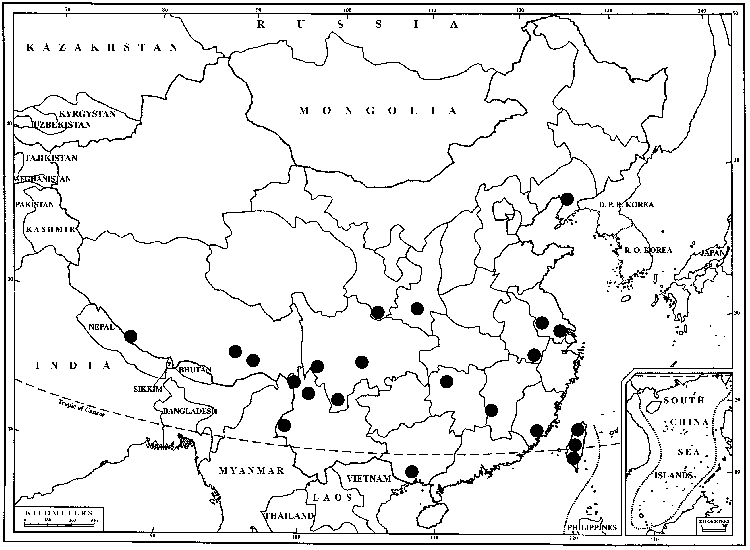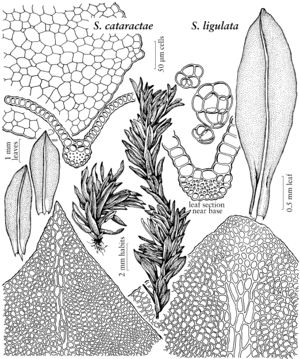Scopelophila cataractae
in H. G. A. Engler and K. Prantl, Nat. Pflanzenfam. 215[I,3]: 436. 1902,.
Stems with red rhizoids or red-tomentose. Cauline leaves brown proximally; margins seldom bordered by thick-walled cells; apex acute or short-acuminate; costa with 2 layers of parenchymatous cells adaxial to the stereid band. Sporophytes not seen in area of the flora.
Habitat: Rock or thin soil over rock
Elevation: moderate to high elevations (800-2000 m)
Distribution

Ariz., Calif., N.C., Pa., Tenn., Tex., Mexico, Central America, w South America, Europe, Asia, c Africa
Discussion
Scopelophila cataractae has the appearance of Tortula but is distinguishable by the dense red tomentum and small, smooth distal laminal cells. Sulphurous smell at a North Carolina station (McDowell County, Newberry Creek gorge, below Mount Mitchell) indicates presence of associated mineral ores. The disjunctive California station (A. J. Steen 1986) is at an old copper mine. Male plants are apparently very rare (A. J. Shaw 1993).
